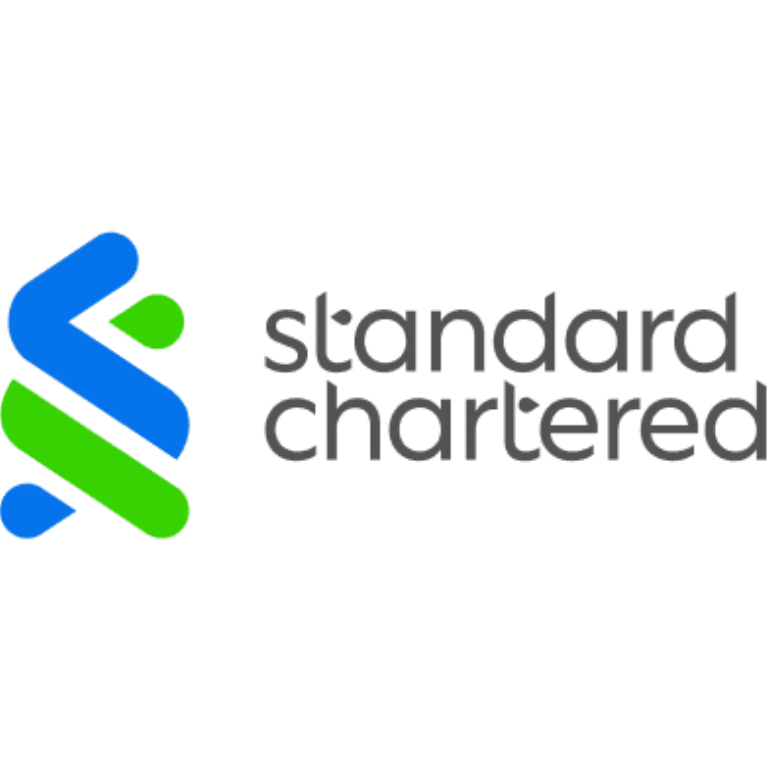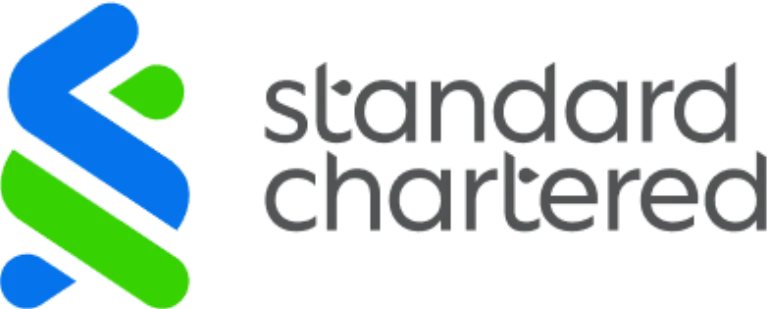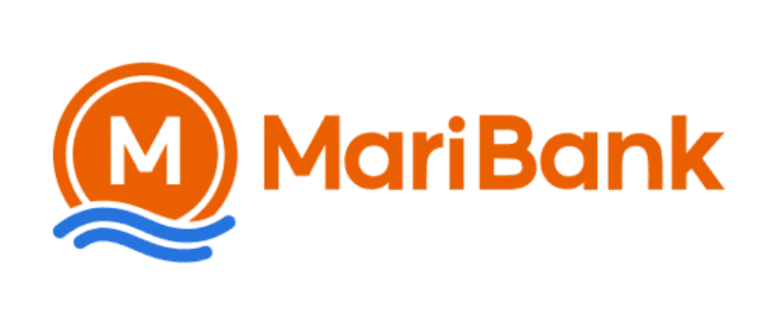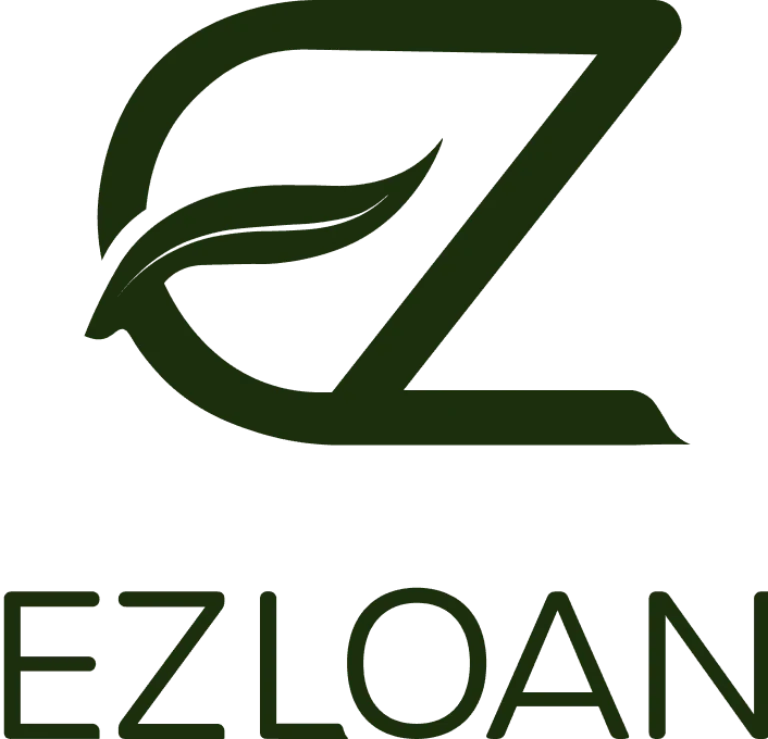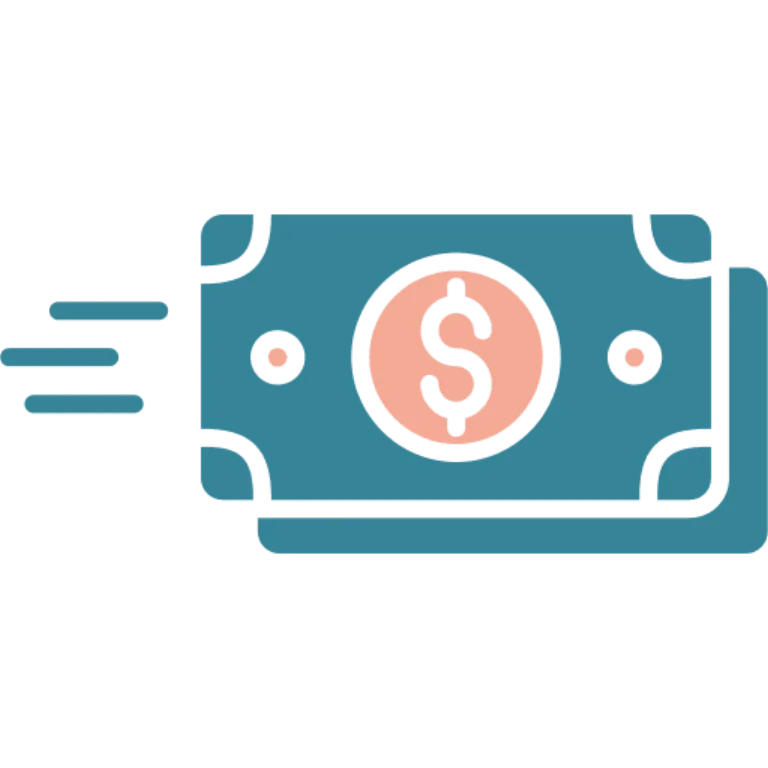Best Personal Loans In Singapore February 2026
Updated: 26 Feb 2026
Don’t miss out on these great deals:
⚡ Limited Time Only: Up to S$4,900 Cashback
Apply and get approved for a Standard Chartered CashOne Personal Loan (min. S$8,000, 3-year tenure) to unlock up to S$500 Bonus Cash, plus 1.28% cashback on your approved loan amount (up to S$3,200)!
Apply by Mar 01, 2026 to claim your reward
Participating Products:
Standard Chartered CashOne Personal Loan
:
Instant disbursement with stackable rewards
How to Qualify?
- SingSaver Flash Deal promotion runs from 2 February 2026 to 1 March 2026.
- Promotion is valid for new and existing Standard Chartered personal loan customers.
- Apply and get approved for a Standard Chartered CashOne personal loan with a min. amount of S$8,000 and min. tenure of 3 years to be eligible for reward.
- Choice of reward varies depending on approved loan amount:
- (S$8,000 – S$9,999): S$120 Cash via PayNow
- (S$10,000 – S$14,999): S$180 Cash via PayNow, plus S$50 Bonus Cash
- (S$15,000 – S$19,999): S$310 Cash via PayNow, plus S$100 Bonus Cash
- (S$20,000 – S$29,999): S$410 Cash via PayNow, plus S$200 Bonus Cash
- (S$30,000 – S$49,999): S$610 Cash via PayNow, plus S$300 Bonus Cash
- (S$50,000 and above): S$1,200 Cash via PayNow, plus S$500 Bonus Cash
- Fastest Reward Fulfilment: Receive your reward in as little as 3 weeks!
- SCB Stackable Welcome Offer: Get an additional 1.28% cashback on your approved loan amount (up to S$3,200)!
- Terms and Conditions apply.
Apply by Mar 01, 2026 to claim your reward
1. Go to Standard Chartered's website and click "Apply Now” button under Personal Loans
2. Fill out an application and submit all required documents
3. Wait for approval of personal loan from Standard Chartered
- Enjoy low interest rates from 1.80% p.a. (EIR: 3.44% p.a.) for longer tenures. Get instant loan approval and cash disbursement in as quick as 15 minutes to your designated bank account.
- Enjoy a 5-year annual fee waiver on your Standard Chartered Platinum Visa credit card
- Min. loan amount of S$1,000
- Max. loan amount of up to S$250,000
- Allow for change of loan tenure.
- Allow for flexible repayment without late fees.
- Waiver of S$50 annual fee (from 2nd year till expiry of loan) if all instalments for the year are paid on or before the due dateMax. loan amount of up to 4X monthly salary, capped at S$250,000
- Read our full review of the Standard Chartered CashOne Personal Loan
- EIR calculated is not yet inclusive of the first-year annual fee of S$199. Interest rate in your application will be based on your credit profile as determined by Standard Chartered.
- First year annual fee: S$199
- Early repayment fee: S$150 or 3% of the outstanding principal, whichever is higher
- Change of tenure: S$50 per change
- Late payment fee: S$100
- Copy of Passport (with at least 6 months' validity), including the page with address displayed (where applicable)
- Copy of your Employment Pass
- Any ONE of the following documents:
- Latest utility bill, rates or tax bill
- Latest bank / credit card statement (e-Statements are accepted)
- Rental agreement showing your address
- Latest mobile phone statement or pay-TV statement
- Letter from employer stating current address
- Government-issued document stating current address (e.g. IRAS, CPF, ICA)
No documents required for Singaporeans / PRs applying via SingPass.
For foreigners applying via SingPass, please prepare the following:
The information displayed above is for reference only. The actual rates offered to you will be based on your credit score and is subject to the provider’s approval.
1. Click “Apply Now” on UOB's website
2. Fill out the application and upload all necessary documents
3. Wait for an offer from UOB
Note: Get instant approval and cash disbursed into your UOB accounts for applications submitted between 8am and 9pm
- Enjoy interest rates as low as 1.00% p.a (EIR from 1.93% p.a.)
- No processing fees
- Get instant approval and cash disbursed into your UOB accounts for applications submitted between 8am and 9pm
- Min. loan amount of S$1,000
- Min. income for Singaporeans/PRs: S$30,000 p.a.
- Read our full review of the UOB Personal Loan
- Foreigners are not eligible for UOB Personal Loan
- Cancellation fee: S$150 or 3% of outstanding approved loan amount, whichever is higher
- NRIC (Front & Back)
- For salaried employees: Last 3 months’ computerised payslip; or Latest Income Tax Notice of Assessment with latest 1 month’s computerised payslip; or latest 6 months’ CPF statement (for Singaporeans or PRs)
- For self-employed persons: Last 2 years’ Income Tax Notice of Assessment
The information displayed above is for reference only. The actual rates offered to you will be based on your credit score and is subject to the provider’s approval.
1. Download the Trust App and navigate to the Instant Loan section
2. Fill out an application and submit all required documents
3. Wait for approval of personal loan
- LOWEST Interest Rates in the Market from 1.56% p.a. (EIR 3.00%* p.a.) with no processing or hidden fees (until further notice)
- Flexible repayments. Choose your desired personal loan amount and tenure. Repay with fixed instalments over 3 to 60 months.
- Fast approval in 60 seconds.
- *EIR calculated based on loan amount of S$90,000 and tenure of 60 months from 1 Jan 2024. Maximum EIR may be up to 22.34% p.a. based on your personal credit profile.
- Deposit Insurance Scheme: SGD deposits of non-bank depositors are insured by the SDIC, for up to S$100,000 in aggregate per depositor per Scheme member by law.
- Min. age requirement: 21 years old
- Minimum annual income of S$30,000 for Singaporean citizen or PR or S$60,000 for foreigners with valid work pass
- Effective Interest Rate (EIR) is calculated based on a loan amount of S$20,000 and loan tenure of 60 months from 1 Jan 2026. Maximum EIR may be up to 25.03% p.a. based on your personal credit profile.
- We charge a 0.88% first year annual fee and this is illustrated in the EIR above. Subsequent annual fee may be applicable, please see our Instant Loan Key Facts Sheet for more details.
1. NRIC (Front & Back)
2. Salaried employees: Latest month’s computerised payslip or latest 6 months’ CPF contribution history statement
3. Self-employed individuals: Last 2 years’ Income Tax Notice of Assessment
4. Commission-based earners: Latest 3 months payslip or latest 6 months' CPF contribution history statement
The information displayed above is for reference only. The actual rates offered to you will be based on your credit score and is subject to the provider's approval.
1. Go to DBS site and click “Apply now” under Personal Loans
2. Log in using your card or ibanking details
3. Fill out and submit all required documents
4. An SMS will confirm if your loan has been approved
5. An approval letter will be mailed to you as well
Note: Applications can be done also via Singpass Myinfo on DBS' website
- Enjoy personalised rates from as low as 1.48% p.a. (EIR 2.84% p.a.) with full processing fee rebate
- Borrow up to 4x your monthly salary if you earn less than S$120,000 annually, or up to 10x if you earn more than S$120,000 annually
- Min. loan amount of S$500
- Tenure: 6 months to 5 years
- Min. income for Singaporeans/PRs: S$20,000 p.a.
- Apply via SingSaver and get your loan approved and disbursed instantly into your DBS/POSB account
- Processing fee: From 1% of the approved loan amount
- Early repayment fee: S$250
- Late payment fee: S$100 for personal loan on DBS/POSB credit card, S$120 for personal loan on DBS/POSB Cashline
1. NRIC (Front & Back)
2. CPF contribution history statement (latest 12 months)
3. Latest 1 year Income Tax Notice of Assessment (NOA)
4. Latest computerised payslip or salary crediting into a DBS/POSB account
The information displayed above is for reference only. The actual rates offered to you will be based on your credit score and is subject to the provider’s approval.
1. Download the GXS app.
2. Click "Sign Up" for GXS FlexiLoan
3. Get your funds within minutes upon approval.
- No Fees Interest Rates from 1.88% p.a. (EIR from 3.47% p.a.).
- Apply in-app and get your funds in minutes
- A standby revolving credit line which you can draw multiple loans from, from as low as S$200
- Customisable loan tenure from 2 to 60 months depending on loan amount selected
- Flexibility to select your preferred repayment date
- No early repayment fee, plus save on interest when you repay early
- Interest is computed on a daily non-compounding basis
- In-app reminders to repay on time and avoid late interest charges
- Effective Interest Rate (EIR) is calculated based on an average loan amount of S$10,000 with a 36-month repayment period, from 1 Jan 2023 to 1 Jan 2026. T&Cs apply.
- Late interest is chargeable upon late repayment
The information displayed above is for reference only. The actual rates offered to you will be based on your credit score and is subject to the provider's approval.
Existing MariBank Customers:
- Log in to the MariBank app.
- Tap Instant Loan on the home screen → Apply.
- Register via Singpass.
If eligible, Instant Loan access is granted immediately. Upon approval, a virtual Mari Credit Card (and Savings Account if not held) is issued
New Users:
- Download the MariBank app.
- Register with a valid Singapore mobile number.
- Select Instant Loan during onboarding.
Apply via Singpass, and receive a virtual credit card & Instant Loan access upon approval
- Lowest interest rate starting from 1.86% p.a. (EIR 2.79%*) with short term repayment (less than 1 year) options available
- Flexible repayment options with tenure up to 60 months
- Fast disbursement within 10 seconds
- Loan drawdown size available from as low as S$100
- Once Interest Loan is approved, a Mari Credit Card will also automatically be issued
- *EIR is calculated based on 3 months tenure with lowest Nominal Interest Rate (NIR) at 1.86% p.a., customer’s NIR and EIR may vary based on individual’s personal profile
- Min. age requirement = 21 years old
- One-time early repayment fee of $100 or 3% of the remaining unpaid principal amount, whichever is higher (or such rate as MariBank may determine) will apply. Interest beyond the current billing cycle will no longer be charged.
- Singpass for digital identity verification (required in the app).
- Mari Savings Account and Mari Credit Card will automatically be opened/issued once Instant Loan is approved.
- Enjoy the lowest interest rates in Singapore
- Get your loan disbursed in just 3 minutes
- Borrow up to 6x your monthly income
- No early repayment fee
- Conveniently located branches
- Trusted and reputable personal loan provider
- Fully licensed & regulated by the Ministry of Law
- Subject to 10% admin fee
The information displayed above is for reference only. The actual rates offered to you will be based on your credit score and is subject to the provider's approval.
- Financing options for customers who may not qualify with other lenders
- Loan offers starting from 16% APR
- Same day offer and disbursement
- No early repayment fees
- Convenient locations near to you
- Late interest is chargeable upon late repayment
The information displayed above is for reference only. The actual rates offered to you will be based on your credit score and is subject to the provider's approval.
1. Download an application form on POSB's website
2. Fill it out and apply online or in-person at one of the bank's branches
3. Wait for an offer from POSB
- Enjoy personalised rates from as low as 1.48% p.a. (EIR 2.84% p.a.) with full processing fee rebate
- Borrow up to 4x your monthly salary if you earn less than S$120,000 annually, or up to 10x if you earn more than S$120,000 annually
- Min. loan amount of S$500
- Tenure: 6 months to 5 years
- Min. income for Singaporeans/PRs: S$20,000 p.a.
- Apply via SingSaver and get your loan approved and disbursed instantly into your DBS/POSB account
- Processing fee: From 1% of the approved loan amount
- Early repayment fee: S$250
- Late payment fee: S$100 for personal loan on DBS/POSB credit card, S$120 for personal loan on DBS/POSB Cashline
1. NRIC (Front & Back)
2. Salaried employees: Latest 9 months’ CPF contribution history statement OR latest 1 year Income Tax Notice of Assessment or latest computerised payslip or salary crediting into DBS/POSB account
3. Self-employed individuals: Latest 1 year Income Tax Notice of Assessment
The information displayed above is for reference only. The actual rates offered to you will be based on your credit score and is subject to the provider’s approval.
- Click "Apply Now" on CIMB Personal Loan Listing
- Complete the application via Singpass Myinfo and submit the required documents
- Wait for approval for CIMB
- Receive cash instantly upon approval
- Enjoy attractive interest rates from as low as 1.60%* p.a. and zero* processing fees (EIR from 2.80% p.a.) for 2-5 years
- Min. loan amount of S$2,000
- Min. income for Singaporeans/PRs: S$20,000 p.a.; Min. income for Malaysians (Non-PR): S$30,000
- Early redemption fee of 3% or S$250, whichever is higher.
- Late payment fee: S$100
- NRIC (Front & Back)
- Salaried Employees: Latest computerised payslip or latest CPF/NOA statements
- Self-Employed: Latest 2 years' NOA
- Commissioned/Variable Income Earners: Latest CPF/NOA statements
- Malaysian NRIC
- Passport (minimum 6 months validity
- latest 3 months pay slip
- Foreign Exchange Notice Declaration Form
For Malaysians, you will need to provide the following supporting documents in the application:
The information displayed above is for reference only. The actual rates offered to you will be based on your credit score and is subject to the provider's approval.
- Apply in just 2 minutes with Singpass
- 0% interest payday loans for eligible applicants
- Get a free credit report (worth $8.72) when you apply with us
- Chosen by more than 5,000 satisfied customers with 5-star ratings on Google
- Guaranteed interest rate, reviewed and approved upfront (risk-based pricing)
- Borrow up to 6x your monthly income
- Get approved in under 10 minutes
- No hidden charges
- Trusted and reputable personal loan provider
- Fully licensed & regulated by the Ministry of Law
- Subject to 10% admin fee
The information displayed above is for reference only. The actual rates offered to you will be based on your credit score and is subject to the provider's approval.
1. Go to HSBC's website and click “Apply Now” under Personal Loans
2. Fill out an application and submit the required documents
3. Wait for approval from HSBC
- One of the lowest interest rates from 1.80% p.a (EIR 3.50% p.a) for those earning min. S$30,000 annually.
- No processing fees
- Instant disbursement upon approval to an HSBC bank account
- Get a 1-minute in-principle approval on your HSBC Personal Loan
- Max. loan amount equal to 90/95% of approved credit limit at time of application
- Min. loan amount of S$1,000
- Option to borrow at a slightly longer loan tenure of 7 years
- Early repayment fee: 2.5% of the repayment amount
- Overdue interest: 2.5% + prevailing interest on overdue amount
- Late payment fee: S$75 for each monthly repayment that is not received in full by the monthly due date
- High base minimum annual income requirement of S$65,000 (w.e.f. 1 October 2025) Learn more.
1. NRIC (Front & Back)
2. For salaried employees: Last 3 months’ computerised payslip, or latest Income Tax Notice of Assessment with latest 1 month’s computerised payslip, or latest 6 months’ CPF statement (for Singaporeans or PRs)
3. For self-employed persons: Last 2 years’ Income Tax Notice of Assessment
The information displayed above is for reference only. The actual rates offered to you will be based on your credit score and is subject to the provider’s approval.
- Free interest for customers that take a 3 month loan if full payment is paid on the 1st month
- Same day disbursement
- Borrow as low as S$200
- Subject to 6% admin fee
The information displayed above is for reference only. The actual rates offered to you will be based on your credit score and is subject to the provider's approval.
- Risk-based pricing—get guaranteed interest rates reviewed and approved
- Borrow up to 6x your monthly income
- 30 minutes loan approval time
- Transparent fee structure with no hidden charges
- Trusted and reputable personal loan provider
- Fully licensed & regulated by the Ministry of Law
- Subject to 8% admin fee
- Max loan tenure of 12 months only
The information displayed above is for reference only. The actual rates offered to you will be based on your credit score and is subject to the provider's approval.
- Apply in just 2 minutes with your digital process, Singpass login – no paperwork needed
- Funds will be disbursed instantly via cash or PayNow upon approval
- Get a swift decision in as little as 30 minutes
- Clear fees, no hidden charges
- 0% interest payday loans for those who qualify
- Pro-rated interest if early settlement, instead of early settlement fees
- Borrow up to 6 times your monthly salary
- Enjoy a quick digitalised loan process
- Subject to admin fees from 7%
The information displayed above is for reference only. The actual rates offered to you will be based on your credit score and is subject to the provider's approval.
- Conveniently located at Jurong East (West Area)
- Apply instantly with Singpass – just 2 minutes!
- Fast approval within 30 minutes
- 0% interest payday loans for eligible applicants
- Licensed and trusted by over 5,000 happy customers
- No hidden fees – 100% transparent rates
- Flexible repayment options to suit your needs
- Instant disbursement via PayNow or cash upon approval
- Subject to 7-10% admin fee
The information displayed above is for reference only. The actual rates offered to you will be based on your credit score and is subject to the provider's approval.
1. Apply once via Singpass on lendela.com
2. Get live quotes from over 70 trusted loan providers
3. Choose your preferred loan and get your money
- Apply once, get multiple loan offers
- Get quotes from over 70 verified loan providers
- No impact on your credit score
- Choose your preferred loan and cash out within the day
- Full loan concierge service
- Free service, no hidden costs
- Interest rate & fees vary depending on chosen loan provider (18.25% p.a. interest on average, 5% processing fee on average)
Use Singpass MyInfo to get more accurate quotes
The information displayed above is for reference only. The actual rates offered to you will be based on your credit score and is subject to the provider's approval.
- One Application, Multiple Offers
- Access to 30+ verified lenders
- Guaranteed 0.5% cashback on your loan. T&Cs apply.
- No impact on your Credit Score
- Get offers within 2 business hours
- Trusted by thousands
- Fair and unbiased matching
- Credit based pricing - Loan terms differ based on your credit profile
- Subject to 10% admin fee
The information displayed above is for reference only. The actual rates offered to you will be based on your credit score and is subject to the provider's approval.
What is a personal loan and how can I use one?
A personal loan in Singapore is an unsecured or secured loan that provides you with a lump sum of money that you can use for various purposes. Secured loans require you to pledge an asset as collateral, such as a car or property, while unsecured loans do not require any collateral.
Personal loans typically have fixed interest rates and monthly repayments, making them easier to account for repayments in your finances. Personal loans in Singapore typically have the following characteristics:
Features of personal loans
|
Feature |
Description |
|
Loan Amount |
Typically ranges from S$1,000 to S$200,000 |
|
Tenure |
1 to 7 years, depending on the lender |
|
Interest Rates |
Between 1.56% to 10% p.a., subject to credit assessment |
|
Processing Fees |
Usually 0% to 10% of the loan amount |
What affects loan interest rates?
Not all loans start and end with the same interest rates. Discover the ways different loans work here.
-
Flat rate: Most personal and car loans operate on flat interest rates. As the name suggests, the interest rate stays the same throughout as interest payments are calculated based on the original principal sum.
-
Monthly rest rate: Monthly rest interest rates go down over time, instead of remaining the same. This is because interest is calculated based on your loan's outstanding balance, which naturally goes down as you make repayments.
-
Floating rate: These loans have rates that vary with time. This means your loan can become significantly more expensive if interest rates climb and stay on the higher side for months.
Factors that affect loan approval
Banks conduct risk assessment to ensure that borrowers can make repayment. Here are the following factors banks will evaluate when you apply for a loan.
-
Minimum annual income: While Singapore citizens and PRs can get away with having a minimum annual income of S$20,000 to S$30,000, this requirement can range between S$60,000 to S$90,000 for foreigners.
-
Credit score: Do you have a good credit history that establishes you as a good borrower who repays on time? Banks will look favourably upon that. Conversely, if you have a recent history of undertaking multiple new credit facilities, banks may decline your loan request, since they may perceive that you may be overextending yourself.
-
Employment status: Banks prefer to lend to salaried individuals with a stable employment record. If you are a freelancer or self-employed, you may need to produce additional documents, such as your Notice of Assessment, for the bank to determine if it's worth lending to you.
-
Existing debt: Banks will review your Balance-to-Income debt servicing ratio to determine if you are ready to sign up for another personal loan. This allows banks to determine how much of your monthly income goes to servicing debt, so they can decide if they should lower your loan amount or decline your request. This isn't too different from home loans, where your Total Debt Servicing Ratio (TDSR) and Loan-To-Value (LTV) Limit are used to assess your suitability for a loan instead.
Browse personal loans for foreigners
Get the best rates and find the latest promos here on SingSaver.
SingSaver’s guide to choosing a personal loan
Assessing your financial needs
An understanding of your financial needs and goals is needed to make the right choice when it comes to personal loans.
-
Determining loan amount and purpose: Determine how much you need to borrow and what you plan to use the funds for. This will help you narrow down your options and choose a loan that aligns with your requirements.
-
Evaluating repayment capabilities: Assess your current financial situation, including your income, expenses, and existing debts. This will give you a realistic idea of how much you can afford to repay each month.
Key factors to consider
When comparing personal loans, pay close attention to the following:
-
Interest rates and fees: Look for a low interest personal loan with competitive interest rates and minimal fees to minimise your overall borrowing costs. Understand how the Effective Interest Rate (EIR) works to get an accurate estimate of how much you’ll actually pay after interest is included.
-
Loan tenure and flexibility: Choose a loan tenure that suits your repayment capabilities. Consider lenders that offer flexible repayment options, such as the ability to make early repayments or change your repayment schedule.
-
Lender reputation and customer service: Opt for reputable lenders with a strong track record of customer satisfaction. Read reviews and compare customer service offerings to ensure you'll have support when you need it.
Shop for loans online
With Singpass and a reliable internet connection, loan applications are more hassle-free than ever.
How to compare personal loans
EIR Meaning
The EIR is a crucial factor to compare as it represents the total cost of borrowing, including interest rates and fees. Look for loans with lower EIRs to minimise your borrowing costs.
Funding time
If you need funds urgently, consider the loan's funding time. Some lenders offer same-day or next-day disbursement, while others may take a few days to process your application.
Payment flexibility
Check if the lender offers flexible repayment options, such as the ability to change your repayment date or make early repayments without penalties.
Monthly payment
Calculate your monthly repayments based on the loan amount, interest rate, and loan tenure. Ensure that the monthly repayments are affordable and fit within your budget.
Fees
Pay attention to any fees associated with the loan, such as processing fees, late payment fees, or early repayment fees. These fees can add to the overall cost of borrowing.
Loan amount and tenure
Ensure that the lender offers the loan amount you need and provides a suitable loan tenure that aligns with your repayment capabilities.
Eligibility criteria
Check the lender's eligibility criteria to ensure you meet their requirements before applying for a loan.
Customer reviews and ratings
Read customer reviews and ratings to get an idea of the lender's reputation and customer service.
Types of personal loans
Personal loans can be used for a wide range of purposes, including:
-
Debt consolidation loans: Consolidate multiple high-interest debts into a single, lower-interest personal loan, making it easier to manage your repayments and potentially save on interest.
-
Home loans: Finance home improvement projects, such as kitchen upgrades or bathroom renovations, with a home loan.
-
Medical loans: Cover unexpected medical bills or major procedures with a personal loan. Or take out an emergency loan for urgent expenses that simply cannot wait.
-
Education loans: The costs of higher education are rising in tandem with inflation. Fund your own education or your child's education with an education loan.
-
Wedding loans: With a typical wedding setting newlyweds back at least S$30,000, it's not uncommon to need a little extra support to offset costs incurred for banquets, photography, videography and venue rentals.
-
Personal loans: Finance large purchases, such as a new car or a dream vacation, with a personal loan. You can also find bad credit loans for individuals with low credit scores or no credit history.
What is a personal loan and how can I use one?
A personal loan in Singapore is an unsecured or secured loan that provides you with a lump sum of money that you can use for various purposes. Secured loans require you to pledge an asset as collateral, such as a car or property, while unsecured loans do not require any collateral.
They typically have fixed interest rates and monthly repayments, making it easier to budget and manage your finances. Specifically in Singapore, personal loans typically have the following characteristics:
|
Feature |
Description |
|
Loan Amount |
Typically ranges from S$1,000 to S$200,000 |
|
Tenure |
1 to 7 years, depending on the lender |
|
Interest Rates |
Vary between 1.56% to 10% p.a., subject to credit assessment |
|
Processing Fees |
Usually 0% to 10% of the loan amount |
Personal loans can be used for a wide range of purposes, including:
-
Debt consolidation: Consolidate multiple high-interest debts into a single, lower-interest personal loan, making it easier to manage your repayments and potentially save on interest.
-
Home renovations: Finance home improvement projects, such as kitchen upgrades or bathroom renovations, with a personal loan.
-
Medical expenses: Cover unexpected medical bills or planned procedures with a personal loan.
-
Education costs: Fund your own education or your child's education with a personal loan.
-
Major purchases: Finance large purchases, such as a new car or a dream vacation, with a personal loan. You can even pay for and finance your wedding!
How to qualify for personal loans
Eligibility is often determined by a combination of factors related to your minimum annual income and residency status.
Review eligibility criteria for personal loans
|
Min. annual income |
Documents required for non-Singpass applications |
|
|
Salaried Singapore citizens & PRs |
S$20,000 to S$30,000 |
|
|
Commission-based Singapore citizens & PRs |
|
|
|
Self-employed Singapore citizens & PRs |
|
|
|
Foreigners |
S$60,000 & above |
|
With more financial institutions fully integrating Singpass into their systems, those with up-to-date information on Singpass Myinfo will find it easier than ever to apply for loans. Aspiring borrowers will no longer need to turn their home upside down to locate their personal and financial documents. They can also dispense with worries of inaccurate data slowing down their application. Foreigners with a valid Foreign Identification Number (FIN) are also eligible for a Singpass account, and will also benefit from not having to deal with tedious paper documentation.
Required documents for licensed moneylender loans
Many licensed moneylenders also allow for loan applications via Singpass. However, you will usually still be required to submit additional documents, such as:
-
A copy of your NRIC
-
Payslips from the last 3 months of your employment
-
Bank statements
As a general rule, most licensed moneylenders do not lend to foreigners. However, some lenders, like MM Credit, 1-Money and JD Credit may lend to foreigners on a case-by-case basis, provided they have a valid work permit and proof of residence.
Why Choose SingSaver?
- We only list lenders licensed by the Monetary Authority of Singapore/Ministry of Law.
- We're impartial & independent; all cross-promotions are transparently stated
- Our articles are 100% free because we believe in making personal finance accessible with easy to understand
- Over 2 million visitors visit SingSaver and Seedly every month for financial advice
- We are a subsidiary of a publicly listed company on the NASDAQ Stock Exchange (NASDAQ: MNY)
Personal loan application process
The most tedious part of any loan application process is the research phase. Thankfully, reviewing loans online is easier than ever with comparison platforms like ours. You can even compare licensed moneylenders loans on dedicated comparison platforms, such as Lendela and credible.sg.
>> MORE: How to Apply for a Personal Loan in Singapore
Step 1: Research and compare personal loan providers
First, look at different personal loan providers and what they offer. Use loan comparison tools to match with providers that have favourable interest rates, terms, and fees.
Step 2: Make a list of documents you need for your loan. You'll usually need:
-
Proof of identity (NRIC or passport)
-
Proof of income (payslips or tax documents)
-
Bank statements
-
Proof of employment
Alternatively, if you are applying via Singpass, check to see if your personal and financial data on Myinfo is accurate as of the time of your submission.
Step 3: Submit your application
Be sure all the information you have provided is accurate and up to date, in order to avoid unnecessary delays.
Step 4: Wait for approval & disbursement
If you're applying via Singpass, your loan may be granted more or less instantly. Manual applications typically require longer processing times. Once your loan is approved, you will receive the principal sum in your bank account within a few business days.
Personal loan interest rates: A guide
If you're looking at a personal loan interest rates comparison, it's important to look beyond the advertised rates. For a more complete picture of your loan's actual cost that listed annual rates cannot provide, look to Effective Interest Rates (EIR) instead.
Interest rates vs. EIR
|
Interest Rate |
EIR |
|
|
What is it? |
A percentage charged on the loan sum |
A percentage reflecting the actual annual cost of a loan |
|
Factors |
The base rate on which interest is calculated |
The stated interest rate + all fees (e.g., processing fees), the effect of compounding & the repayment schedule. |
|
Calculated by |
May be calculated on the loan sum via a flat rate or a monthly rest rate |
Calculated on the reducing balance to show the true cost over time |
|
What it’s for |
To show the basic cost of borrowing |
Provides a complete and accurate comparison of the total borrowing cost |
EIR incorporates not just the interest rate, but also all the other fees and charges you'll be responsible for paying. It takes into account the impact of compounding and the timing of your repayments, providing a more accurate reflection of the total cost of borrowing.
Because it includes all costs borne over time, EIR is a more reliable metric for calculating the financial impact of a personal loan and can help you make informed financial decisions.
Can you pay off a loan with another loan?
From lower interest rates to combining several loans into one, refinancing could be a smart money move.
Factors influencing interest rates
Your credit score, income, loan amount, loan tenure, and debt-to-income ratio (DTI) are some of the factors that can influence the interest rate you're offered.
-
Credit score: A good credit score is essential. Lenders use your credit score as a snapshot of your creditworthiness. A higher score indicates a history of responsible borrowing and timely repayments, making you a less risky borrower. Factors that influence your credit score include your payment history, outstanding debt, credit history length, types of credit used, and recent credit applications. Learn more about how to check your credit score in Singapore here.
-
Income: Lenders also consider your income and employment status as indicators of your ability to repay the loan. A stable income and secure employment history demonstrate financial stability and reduces the perceived risk for lenders. Conversely, an unstable income or hopping from employer to employer may result in higher interest rates.
-
Loan amount: The amount you borrow can also affect interest rates. Larger loan amounts might carry lower rates than smaller ones.
-
Loan tenure: The length of your repayment period (loan tenure) can also influence the interest rate. Shorter tenures often have lower interest rates, but higher monthly payments. Longer tenures have lower monthly payments but accrue more interest over the life of the loan.
-
Debt-to-income ratio: Your DTI, the proportion of your monthly income that goes toward debt repayments, is another crucial factor. A lower DTI indicates that you have more disposable income available, making you a lower-risk borrower and potentially qualifying you for better rates. A high DTI, on the other hand, may lead to higher interest rates or even loan rejection.
Frequently asked questions about personal loans in Singapore
A personal loan provides you with a lump sum of money that you repay with interest over a set period. You'll make regular monthly repayments until the loan is fully repaid.
Approval and disbursement time for personal loans varies from lender to lender. Some lenders offer same-day or next-day approval and disbursement, while others may take a few days to process your application. However, before taking on a loan, it is important to know if you’re eligible. Pre-qualify with SingSaver to save time and avoid applying for loans you’re unlikely to get.
Yes, foreigners can apply for personal loans in Singapore, but they may have to meet additional eligibility criteria, such as having a valid work pass and a higher-than-average minimum annual income.
Different banks have different eligibility criteria for personal loans. Some banks may have more lenient requirements than others. However, as a general rule of thumb, a minimum annual income of S$20,000-30,000 is required for Singaporean citizens and PRs.
The lending rate in Singapore refers to the interest rate charged on loans. It can vary depending on the type of loan, the lender, and the borrower's credit profile. Average lending rates for personal loans can range from 2.5% to 10% p.a., but these are subject to individual assessment and prevailing market conditions.
Taking out a personal loan can affect your credit score in both positive and negative ways. Making timely repayments can improve your credit score, while late payments or defaulting on the loan can negatively impact your score.
The monthly cost of a $5,000 loan depends on the interest rate and repayment period. You can use Singsaver's personal loan calculator to estimate your monthly repayments accurately based on your preferred loan terms.
Personal loan interest rates in Singapore vary depending on the bank, your income, credit score, and loan tenure. The lowest rates may be offered by banks running limited-time promotions, so it's best to compare current offers to find the most suitable option.
Disclaimer
Each lender has its own specific eligibility criteria for personal loans, and meeting these criteria does not guarantee loan approval. The final decision rests with the individual lender based on their assessment of your financial situation and creditworthiness. The interest rates and fees displayed on this page are indicative and subject to change, as actual rates and fees may vary depending on the lender, your individual profile, and prevailing market conditions. Always refer to the lender's official website or contact their representatives for the most up-to-date information.
The information on this page is for educational and informational purposes only and should not be considered financial or investment advice. While we review and compare financial products to help you find the best options, we do not provide personalised recommendations or investment advisory services. Always do your own research or consult a licensed financial professional before making any financial decisions.
🔥 Hot Pick: Enjoy SCB Personal Loan up to S$4,900 cashback
Get up to S$1,700 cash plus 1.28% cashback on your approved loan amount when you apply for SCB Personal Loan!
⏰ Limited time only. T&Cs apply.
